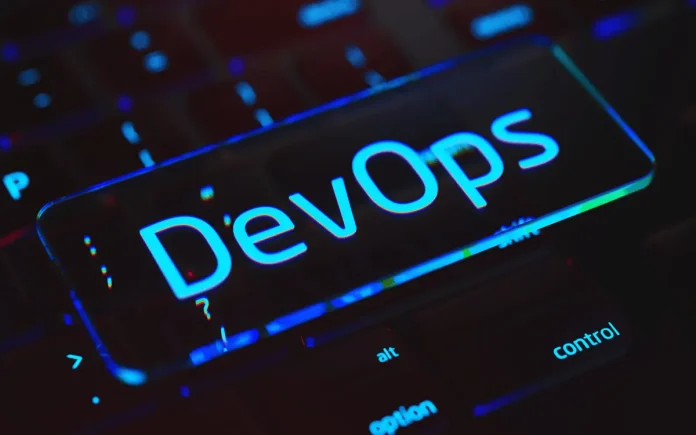
As technology evolves rapidly, the DevOps landscape undergoes constant transformation, demanding proficiency in a diverse array of skills to stay relevant and competitive. In 2024, navigating the dynamic world of DevOps requires a keen understanding of the top skills that drive innovation, efficiency, and success in software delivery.
From automation and cloud computing to containerization and CI/CD pipelines, mastering the essential skills is crucial for professionals aiming to excel in this rapidly evolving field. In this blog, we’ll explore the top skills to learn in 2024, empowering individuals to stay ahead at the edge and thrive in the constantly changing landscape.
DevOps is poised to be a burgeoning career path due to the increasing adoption of cloud computing, agile methodologies, and automation in software development. As organizations strive to accelerate delivery timelines, enhance collaboration between teams, and improve overall efficiency, the demand for DevOps professionals is expected to rise significantly. Pursuing DevOps training equips individuals with future-proof skills essential for navigating this evolving landscape.
By gaining expertise in areas such as automation, cloud technologies, containerization, and CI/CD pipelines, professionals can position themselves as valuable assets in organizations seeking to optimize their software delivery processes. Investing in a course ensures that individuals are equipped with the skills and knowledge needed to thrive in the growing career opportunities of the future.
DevOps: An Overview
DevOps is a software development methodology that emphasizes collaboration, communication, and automation between development (Dev) and IT operations (Ops) teams. It aims to streamline the software delivery lifecycle, allowing faster and more reliable deployment of applications. It combines cultural philosophies, practices, and tools to increase a business’s ability to deliver applications and services at high velocity.
By fostering a culture of continuous integration, continuous delivery, and continuous monitoring, it enables teams to respond rapidly to customer feedback and market changes, ultimately driving business agility and innovation.
Top DevOps Skills to Learn in 2024
Knowledge of Linux: Linux is a ubiquitous operating system widely used in server environments, making it essential for DevOps professionals. Mastery of Linux involves understanding its command-line interface, file system hierarchy, process management, and network configurations.
It practitioners leverage Linux to manage servers, deploy applications, configure networks, and automate tasks using shell scripting or command-line utilities like bash, grep, sed, and awk. A strong foundation in Linux empowers DevOps engineers to effectively manage and troubleshoot infrastructure, ensuring the reliability and performance of applications in production environments.
Coding and Scripting: Proficiency in coding and scripting is fundamental for professionals to automate processes, manage infrastructure, and implement continuous integration and continuous delivery (CI/CD) pipelines. Engineers commonly use languages like Python, Ruby, Shell scripting, or PowerShell to write automation scripts, develop infrastructure as code (IaC), and integrate various tools and systems. Through coding and scripting, DevOps practitioners streamline workflows, accelerate deployment cycles, and enhance the scalability and reliability of software delivery pipelines.

Software Security: Software security is paramount to protect applications, data, and infrastructure from vulnerabilities, breaches, and cyber threats. DevOps professionals need a thorough understanding of security principles, best practices, and compliance standards to ensure the confidentiality, integrity, and availability of systems and data.
This includes implementing security controls, conducting vulnerability assessments, performing code reviews, and integrating security testing into CI/CD pipelines. By prioritizing security throughout the software development lifecycle, DevOps engineers mitigate risks and safeguard applications against security threats.
Automation Skills: Automation is at the core, enabling teams to streamline workflows, eliminate manual tasks, and accelerate software delivery cycles. DevOps professionals leverage automation tools and frameworks such as Ansible, Puppet, Chef, or SaltStack to automate infrastructure provisioning, configuration management, application deployment, and testing processes.
Automation empowers its engineers to achieve consistency, repeatability, and scalability in their operations, resulting in faster time-to-market, reduced errors, and improved efficiency across development and operations teams.
Command on Containers: Containers have revolutionized software development and deployment by providing lightweight, portable, and scalable environments for running applications. Its professionals require proficiency in containerization technologies like Docker to package, deploy, and manage applications consistently across different environments.
They use container orchestration platforms such as Kubernetes to automate container deployment, scaling, and management, ensuring high availability, fault tolerance, and resource optimization. By mastering containers and orchestration tools, engineers enable rapid application deployment, seamless scaling, and efficient resource utilization in modern cloud-native environments.
Knowledge of Tools: DevOps relies on a wide range of tools and technologies for collaboration, version control, automation, monitoring, and infrastructure management. Its professionals should be familiar with popular tools such as Jenkins, Git, Terraform, Kubernetes, Prometheus, Grafana, and Docker, among others.
They leverage these tools to implement their practices, automate workflows, monitor performance, and optimize infrastructure in hybrid or cloud environments. Proficiency in tools enables engineers to build robust, scalable, and resilient systems that meet business objectives and deliver value to customers effectively.
Cloud Computing Skills: Cloud computing plays a pivotal role in it by providing scalable infrastructure, platform services, and automation capabilities for deploying and managing applications. DevOps professionals need expertise in cloud platforms like Amazon Web Services (AWS), Microsoft Azure, Google Cloud Platform (GCP), or others to leverage cloud services for provisioning resources, deploying applications, and implementing infrastructure as code (IaC).
They use cloud-native tools and services such as AWS Elastic Compute Cloud (EC2), Azure Virtual Machines (VMs), or Google Kubernetes Engine (GKE) to build scalable, resilient, and cost-effective solutions in the cloud. By mastering cloud computing skills, the engineers optimize resource utilization, improve deployment agility, and enhance scalability and flexibility in cloud-based environments.
Learn to use Cloud Contact Software to Enhance Customer Experience.
Conclusion
The top DevOps skills for 2024, including proficiency in Linux, coding, automation, and cloud computing, are essential for navigating the dynamic tech landscape. Undertaking DevOps training equips individuals with these sought-after skills, providing a solid foundation for building a successful career. By mastering these skills, professionals can adapt to industry trends, drive innovation, and contribute to the seamless integration of development and operations, positioning themselves as invaluable assets in the evolving world of technology.









